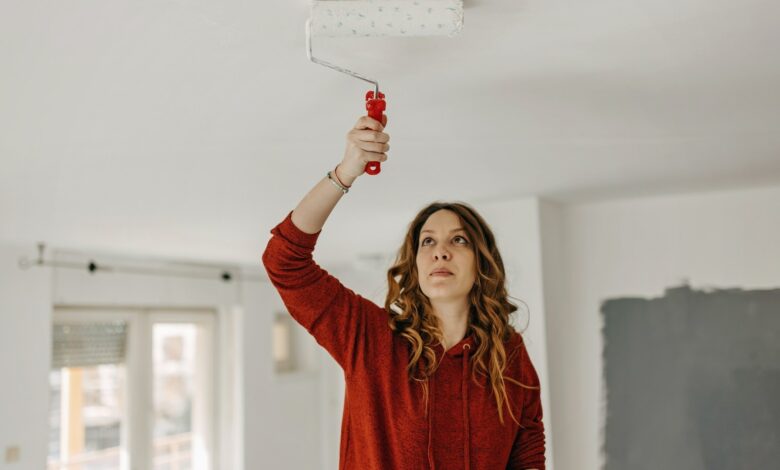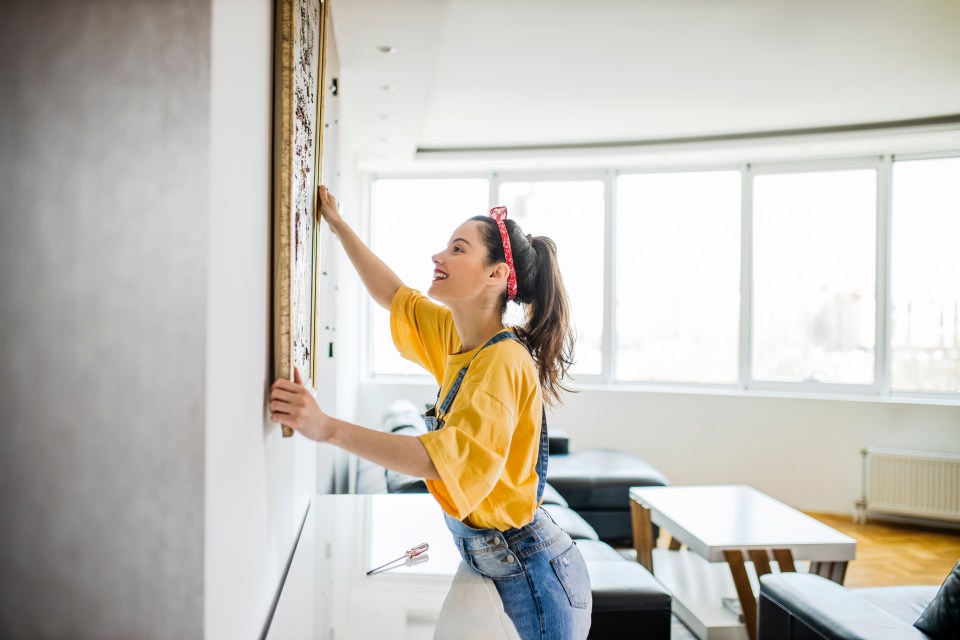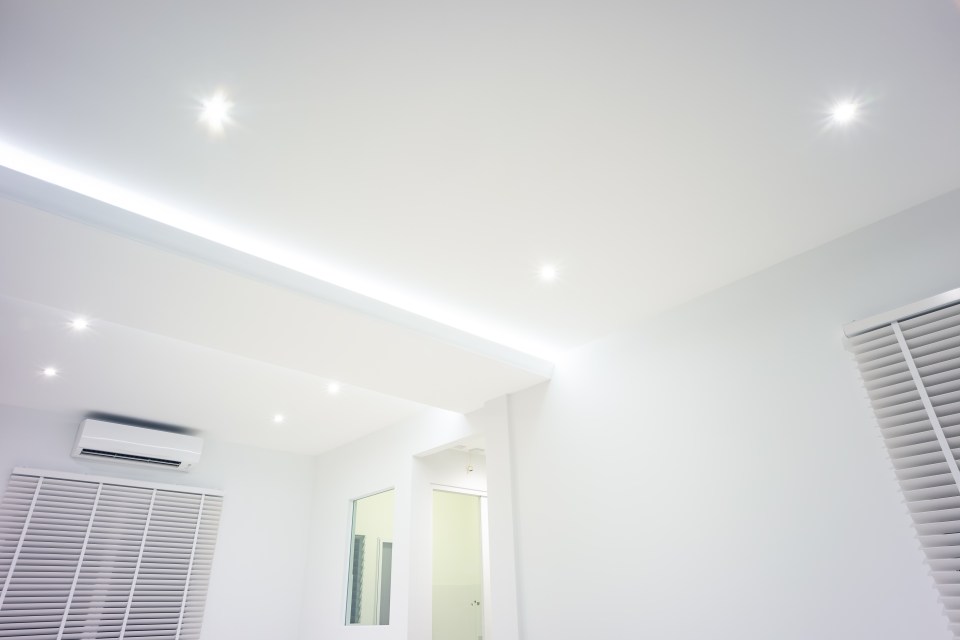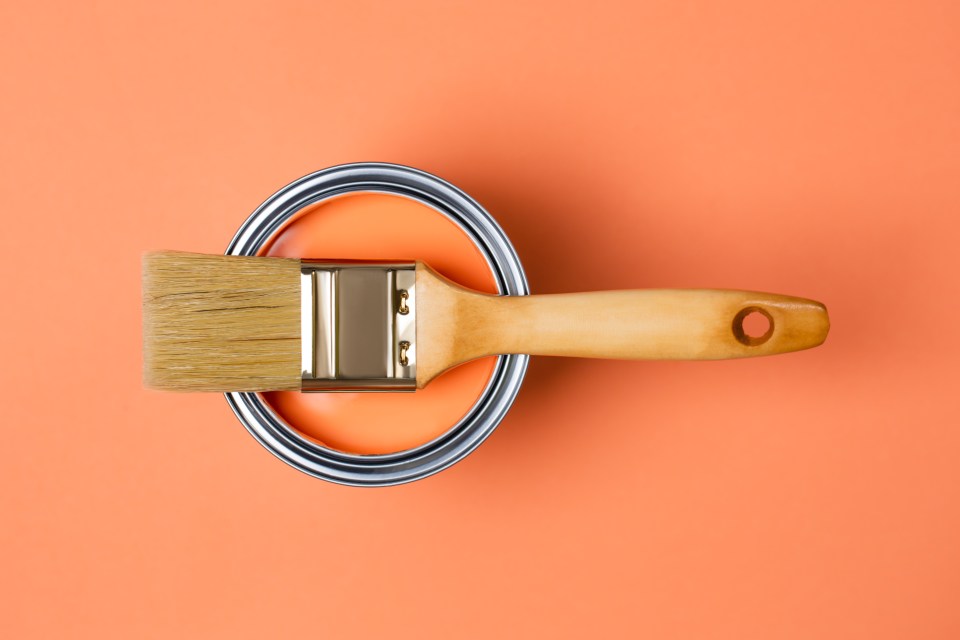I’m an interior designer and four trends make your home feel cold




With Christmas and New Year just around the corner, some of us may be thinking about giving our homes a makeover.
Every new year brings a fresh start, so it’s no wonder that many consider the festive period as the perfect time to carry out minor renovation work.
Especially as certain design trends are now starting to fade as we approach 2025.
And with that in mind, interior designers have revealed the trends we should avoid next year to prevent our homes from feeling ‘clinical’.
The experts also shared their top tips on what homeowners can do to create a cozy and timeless space.
Cosmin Musatescu, London-based bespoke furniture maker at C-Made, said: “The year ahead calls for designs that prioritize comfort, versatility and bold, cohesive choices, setting the stage for spaces that are both fresh and sustainable. feel.”
The first thing we should avoid in our homes next year is over-the-top minimalism, as this can “deplete” your home of any personality.
The experts explained: ‘Minimalism has its moments, but when taken to extremes it can drain a room of personality.
The year ahead calls for designs that prioritize comfort, versatility and bold, cohesive choices, paving the way for spaces that feel both fresh and sustainable
Cosmon Musatescu
“Instead of stripping everything down, try incorporating layers of textures and pops of color. Minimalism should be about simplicity, not sterility.”
This also applies to homes with all-white rooms, with Cosmin saying this can create a ‘clinical’ feel.
They added: “It’s difficult to achieve all-white rooms without feeling clinical. For 2025, move away from plain white and explore earthy neutrals or deeper shades.
“Colors have a transformative power, making a space feel more inviting and personal.”
It’s also bad news if you like to combine multiple trends in one space, as the experts say it can make your home look ‘overloaded’.
Cosmin explained: “Mixing every trend leads to a lack of cohesion and an overcrowded aesthetic.
“Instead, choose one or two elements that really resonate with you, and build from there. Timeless design is about balance, not overload.”
Most of us want a perfect home, but experts say if it looks too much like a showroom home, it won’t feel real.
They added: “Themed rooms can feel like a backdrop rather than an lived-in space.
Comfort is finally becoming a design priority, and rightly so. In 2025 it is about creating a sanctuary, a place where you can relax and really feel at home
Cosmon Musatescu
“For a sophisticated look, you can subtly draw inspiration from a theme rather than creating a ‘showroom effect’. This way the space still feels authentic and connected to the rest of the home.”
Trends to embrace instead
If you’re looking to spruce up your home as we head into 2025, you might want to keep it in mind.
Cosmin has shared four trends we should embrace and are predicted to hit our homes – and it’s all about color and comfort.
The first thing to try is color drenching, which involves painting walls, trim, and even ceilings in one striking shade.
The experts say this creates an enveloping effect that is both dramatic and cozy.
They added: “For 2025, I see rich greens, warm terracottas and metallics becoming favourites.
“This approach brings a space to life and lets the architecture speak for itself.”
The choice of a multifunctional design is also becoming increasingly popular, especially for those of us who need more in our homes.
Cosmin explains: “Furniture that adapts, such as extendable tables or sofa beds, makes a home more versatile without sacrificing style. Each piece should serve multiple purposes, especially in urban spaces.”
7 design choices that help prevent stress
While some people decide to decorate their homes in classic and timeless styles, others prefer something more eccentric.
But whatever the choices, what many don’t know is that the design of your home can actually have an impact on your mental health. Here are seven design choices to help prevent stress.
- Add some floral flair – Not only does it create a more soothing environment, but houseplants also act as natural air filters, reducing allergens and improving air quality.
- Enjoy your favorite aromas – the scents in your home can really affect your stress levels, so try scents that are related to nature, flowers or those associated with happy memories.
- Let the sunlight in – maximizing natural light in your home will improve your sleep patterns, motivation, mood and happiness.
- Embrace soothing colors – choose softer colors in the rooms where you want to relax.
- Create a memory corner – Filling your home with memories can make you feel happy, cozy and put a smile on your face.
- Invest in your sleep – Investing in things that help you get a good night’s sleep is one way to lower your stress levels, such as buying blackout curtains or cotton bedding.
- Organize everything – a messy house is a stressful house, so organizing your space can do wonders for your mental health.
Another way to add more personality to our homes is to play with patterns; this adds dimension and boldness when used thoughtfully.
The experts say: “Mixing patterns can be daring, but stick to complementary tones to avoid chaos.
“This year I’m seeing a lot of interest in geometric and organic patterns that add texture and interest without being overwhelming.”
And finally, to make your home a haven for comfort, adding super comfortable furniture is a trend for 2025.
Cosmin revealed: “Comfort is finally being prioritized in the design, and rightly so.
“By 2025, soft textures, deep-seated sofas and layered materials will be on the rise.
“It’s about creating a sanctuary, a place where you can relax and really feel at home.”







